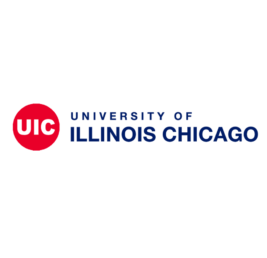
PhD-Cardiovascular function around the clock: harnessing protective circadian mechanisms towards smarter design of novel retinoid therapies and lifestyle interventions
PhD @University of Liverpool posted 1 month ago in Biological Sciences , in Public Health Shortlist Email JobJob Detail
-
Experience No Preference
-
Qualifications Master’s
Job Description
Overview
This exciting project will investigate novel protective cardiac mechanisms and time-of-day circadian information on optimal treatments with the aim of improving cardiovascular health. The student will benefit from multidisciplinary training in a number of cutting-edge research areas from whole body physiology, chronobiology and cardiovascular ageing to pharmacology, synthetic chemistry and data science/modelling.
About this opportunity
Heart failure (HF) is one of most significant contributors of mortality globally. Whilst some therapeutic options are available, half of the people die within 5 years of diagnosis, and those diagnosed with end-stage heart failure die within a year. Emerging data has shown that HF in patients is associated with downregulation of retinoic acid (RA) pathway, and that retinoid-based treatments in preclinical models have promising results on cardiovascular outcomes.
Circadian rhythms, a cell-autonomous ~24h time-keeping mechanism, controls many physiological processes such as sleep/wake cycles, drug metabolism and hormones. Many indices of cardiovascular function are regulated by the clock and clock disruption in humans and animals is associated with a number of cardiovascular conditions and adverse outcomes. We have recently gained data showing that circadian rhythms regulate key components of RA pathway in peripheral organs, hence supporting the need for time-scheduled retinoid targeting. This project will provide novel paradigm-shifting knowledge on protective cardiac mechanisms and time-of-day information on optimal treatments with novel synthetic retinoids (provided by our industrial partner) to improve cardiovascular health, which is translationally relevant to patients.
This exciting PhD project will test the two main hypotheses that:
1) Disruption of cardiac clocks leads to altered RA pathway
2) Realigning cardiac clocks is essential for designing effective therapies to improve cardiovascular health.
We will investigate 3 main aims:
1) Identify key biomarkers within RA pathway regulated by the cardiac clocks, and how they change with age
2) Determine how the circadian RA pathway is changed in preclinical models of HF, pathological cardiac hypertrophy and physiological hypertrophy.
3) Test optimal time-of-day treatments for novel retinoids in their ability to boost cardiovascular RA metabolism.
EXPERIMENTAL APPROACHES: We will utilise in vivo preclinical mouse models of ageing and HF containing clock luciferase reporters as well as in vitro culturing of human cardiac cells with serum samples from HF patients. Key laboratory methods include: real-time bioluminescence imaging to monitor clock gene rhythms, histological assessment of tissue/cell physiology, gene/protein expression analyses to determine molecular changes and genome-wide omics profiling approaches to identify time-of-day regulation of target biomarkers. Training will also involve quantitative in silico approaches to model chrono-based retinoid targeting in a human setting and the effects of clock disruption on cardiovascular system and target biomarkers.
RESEARCH ENVIRONMENT: The student will be trained in vibrant multi-user laboratories where they will share stimulating research environment with several PhD students and post-docs from diverse backgrounds. Through the combined expertise of the supervisory team and an industrial partner, the student will benefit from multidisciplinary training in a number of cutting-edge research areas from whole body physiology, chronobiology and cardiovascular ageing to pharmacology, synthetic chemistry and data science/modelling. Throughout their PhD training, the student will be encouraged to take up valuable training opportunities and research exchanges, participate in national/international conferences and attend in-house courses to boost their research skills (e.g. IT, statistics, scientific integrity, ethics, critical thinking, project and time management, networking and teamwork, scientific writing, presentation skills and patient/public involvement).
Supervisors
The applicants should possess an undergraduate degree in one of the Life Sciences disciplines at a 2.1 level equivalent or higher, and a MSc/MRes degree in a relevant discipline (or a year of relevant research/industrial experience).
Further reading
- Does omega-3 supplementation improve the inflammatory profile of patients with heart failure? A systematic review and meta-analysis. Heart failure reviews (2023), 28 (6). pp. 1417-1425 DOI: 10.1007/s10741-023-10327-0
- A circadian clock in the sinus node mediates day-night rhythms in Hcn4 and heart rate. Heart Rhythm (2021), 18 (5). pp. 801-810 DOI: 10.1016/j.hrthm.2020.11.026
- Quantitative proteomics and single-nucleus transcriptomics of the sinus node elucidates the foundation of cardiac pacemaking. Nature Comms (2019), 10 (1). 2889-2898 DOI: 10.1038/s41467-019-10709-9
- N-acetyl cysteine alleviates oxidative stress and protects mice from dilated cardiomyopathy caused by mutations in nuclear A-type lamins gene, Hum Mol Genet (2018) 27(19):3353-3360 DOI: 10.1093/hmg/ddy243
- Cellular mechano-environment regulates the mammalian circadian clock, Nature Comms (2017) 30 8:14287 DOI: 10.1038/ncomms14287
The circadian clock regulates rhythmic activation of the NRF2/glutathione-mediated antioxidant defense pathway to modulate pulmonary fibrosis, Genes & Development (2014) 28 6: 548-60 DOI: 10.1101/gad.237081.113
How to apply
-
1. Contact supervisors
Please email your CV and cover letter to the primary supervisor along with the project title and reference number, Dr Vanja Pekovic-Vaughan, in the first instance vpv35@liverpool.ac.uk
Dr Vanja Pekovic-Vaughan Vanja.Pekovic-Vaughan@liverpool.ac.uk https://www.liverpool.ac.uk/people/vanja-pekovic-vaughan Dr Sunil Logantha sunil.logantha@liverpool.ac.uk https://www.liverpool.ac.uk/people/sunil-jit-logantha Dr Masoud Isanejad M.Isanejad@liverpool.ac.uk https://www.liverpool.ac.uk/people/masoud-isanejad Prof Paul Chazot paul.chazot@durham.ac.uk https://www.durham.ac.uk/staff/paul-chazot/ -
2. Prepare your application documents
You may need the following documents to complete your online application:
- A research proposal (this should cover the research you’d like to undertake)
- University transcripts and degree certificates to date
- Passport details (international applicants only)
- English language certificates (international applicants only)
- A personal statement
- A curriculum vitae (CV)
- Contact details for two proposed supervisors
- Names and contact details of two referees.
-
3. Apply
Finally, register and apply online. You’ll receive an email acknowledgment once you’ve submitted your application. We’ll be in touch with further details about what happens next.
Fees and funding
Your tuition fees, funding your studies, and other costs to consider.
Tuition fees
UK fees (applies to Channel Islands, Isle of Man and Republic of Ireland)
Full-time place, per year – £5,006
Part-time place, per year – £2,503
International fees
Full-time place, per year – £31,250
Part-time place, per year – £15,649
fees stated are for 2025/26 academic year
Additional costs
We understand that budgeting for your time at university is important, and we want to make sure you understand any costs that are not covered by your tuition fee. This could include buying a laptop, books, or stationery.
Find out more about the additional study costs that may apply to this project, as well as general student living costs.
Funding your PhD
If you’re a UK national, or have settled status in the UK, you may be eligible to apply for a Postgraduate Doctoral Loan worth up to £30,301 to help with course fees and living costs.
There’s also a variety of alternative sources of funding. These include funded research opportunities and financial support from UK research councils, charities and trusts. Your supervisor may be able to help you secure funding.
Scholarships and bursaries
We offer a range of scholarships and bursaries that could help pay your tuition fees and living expenses.
Duncan Norman Research Scholarship
If you’re awarded this prestigious scholarship, you’ll receive significant funding to support your postgraduate research. This includes full payment of your PhD fees and a cash bursary of £17,000 per year while you study. One award is available in each academic year.
Sport Liverpool Performance Programme
Apply to receive tailored training support to enhance your sporting performance. Our athlete support package includes a range of benefits, from bespoke strength and conditioning training to physiotherapy sessions and one-to-one nutritional advice.

